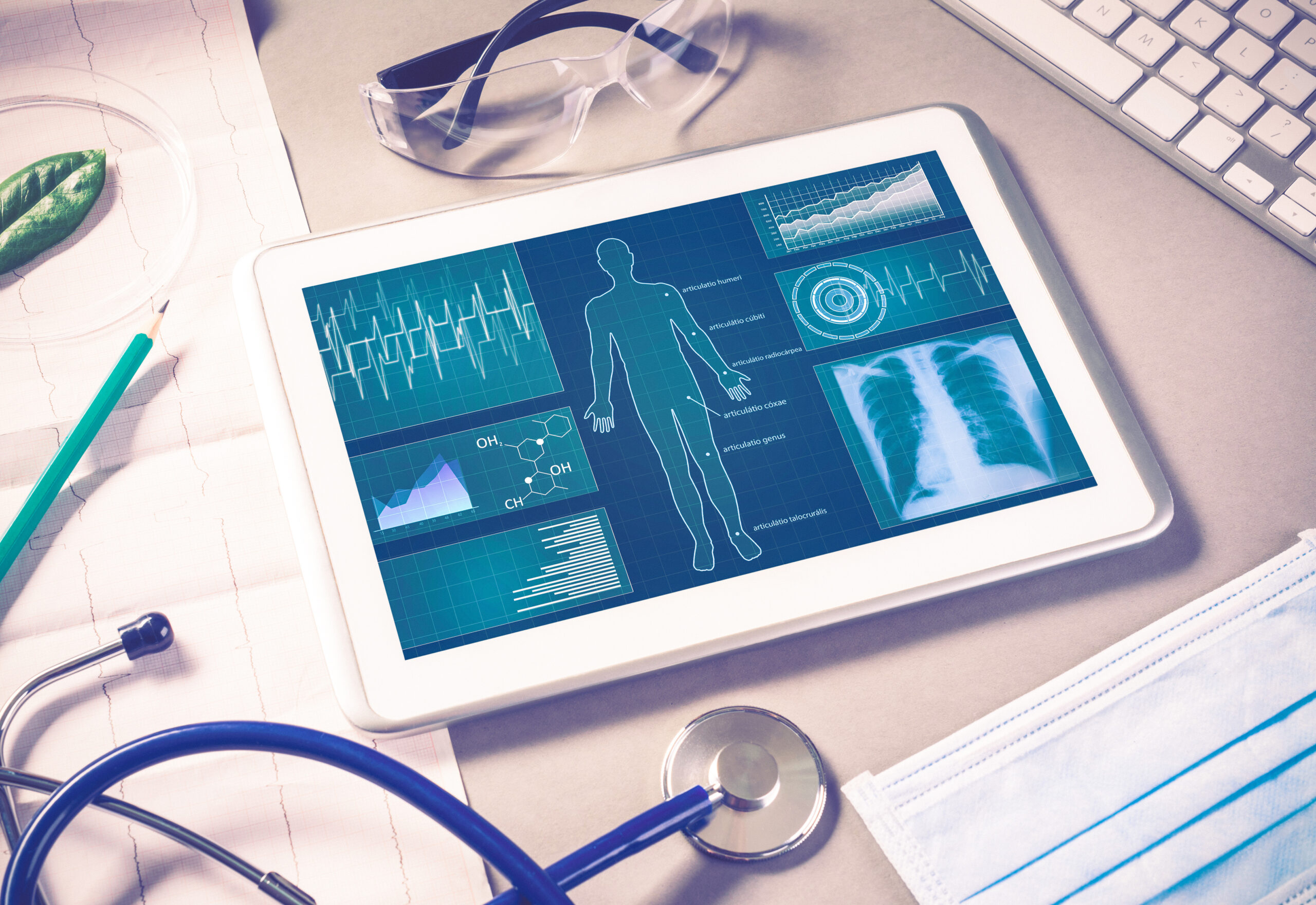Medical apps are widespread nowadays.
Due to the Covid19 pandemic in 2020, but not only, the health sector has also changed dramatically.
Many medical and health-related services and diagnoses are based on medical software, robots, and AI tools.
Compared to traditional pharmaceutical products and medical device development costs, medical and health software, hardware, and wearable developed with little investment.
Gain customer trust in your digital health service
Here are some tips on which medical App can gain customer trust:
| Tip | Action to be taken |
| Transparent and Accurate Information | Medical apps should provide transparent and accurate information about their services, including the data they collect, how it is used, and their international privacy certifications such as: · ISO 27001 · ISO 27799 · HIPAA · GDPR · Hi -Trust · SOC-2 It is recommended that these certifications will be seen on your website and/or App. Description. This information should be easy to access and presented clearly and concisely. For information security and privacy certification click here |
| User-Friendly Design | If you want to maximize your App sales, it should be used by all population segments. It would be best to assure older people, youth, and people with medical problems and patients could use it easily. The medical App should have a user-friendly, easy-to-navigate, use, and straightforward design. The design should be visually appealing, and the App should have an intuitive interface. |
| Reviews and Ratings | The medical App should have as much as positive user reviews and ratings. This can be achieved by providing excellent customer service, promptly addressing issues or concerns, and continuously improving the App’s features and functionality. |
| Security Measures | Medical apps should have a detailed risk analysis document for information security and robust security measure space to protect users’ data and privacy. They should use encryption, firewalls, and other security technologies to prevent unauthorized access to user data. |
| Compliance with Regulations | Medical apps should comply with HIPAA (Health Insurance Portability and Accountability Act) regulations in the US or GDPR (General Data Protection Regulation) in the European Union. You must have an effective quality management system (QMS) and Information Security Management System (ISMS) policies and procedures documents. Compliance with these regulations demonstrates that the medical App takes quality, safety, privacy, and data protection seriously. For QMS and/or ISMS Certifications click here. |
| Partnership with Healthcare Providers | Medical apps can gain customer trust by partnering with healthcare providers and clinics. This can include collaborating with doctors, hospitals, and other healthcare organizations to provide users with accurate medical information and advice. If you want us to introduce you to a potential client click here |
By implementing these strategies, medical Apps can gain customer trust and establish themselves as reliable, safe, accurate, and trustworthy medical information and service.
Digital health services, software & App FDA approval
To differentiate themselves from other medical Apps, companies can take additional steps related to regulatory issues such as information security and FDA approval.
Here are some strategies:
| Strategy | Action to be taken |
| Obtain FDA Approval | The company can seek FDA approval if the medical App provides a diagnostic or therapeutic function. This can provide a competitive advantage as it demonstrates that the technical file of the medical App has been reviewed by a regulatory agency and is deemed safe and effective. For FDA approval click here |
| Meet Industry Standards | Companies can also aim to exceed minimum regulatory requirements by meeting industry standards for information security, such as the ISO/IEC 27001 standard for information security management systems. For ISO 27001 certification click here |
| Use Data Encryption | Companies can use data encryption to protect user data from unauthorized access. This can include using encryption for data in transit and at rest and implementing two-factor authentication to prevent unauthorized access. |
| Conduct Regular Security Audits | Companies can use data encryption to protect user data from unauthorized access. This can include using encryption for data in transit and at rest and implementing two-factor authentication to prevent unauthorized access, password management, etc. |
| Validation | Your medical software or health App. Must be validated to ensure proper installation and functionality and to ensure it meets all regulatory requirements. For software validation services click here |
By implementing these strategies, digital health companies can differentiate themselves from other medical apps by demonstrating a commitment to information security and regulatory compliance. This can help them build a loyal user base and gain a competitive advantage in the digital health industry.
Medical software & App for healthcare providers
Medical apps can be valuable tools for healthcare providers, including clinics. However, for a medical App to be used by clinics, it must meet specific requirements.
Here are some things that a medical App should have to be used by clinics:
| Criteria | Action to be taken |
| Integration with EHR Systems | Healthcare providers widely use electronic health record (EHR) systems to manage patient records. A medical App should be able to integrate with EHR systems, allowing healthcare providers to access patient data and update records seamlessly. |
| HIPAA Compliance | The Health Insurance Portability and Accountability Act (HIPAA) sets standards for protecting and securing protected health information (PHI). A medical App should be HIPAA compliant, ensuring patient data is kept confidential and secure. For HIPAA compliance and procedures click here |
| Customization | Clinics have unique needs and workflows. A medical App should be customizable to meet the specific needs of a clinic, such as the ability to create custom forms, templates, and workflows. |
| User-Friendly Design | A medical App should have a user-friendly, straightforward design for healthcare providers and multi-lingual. The App should have an intuitive interface and be easy to navigate. |
| Validation | You medical App. Must meet the 21 CFR part 11 FDA and the Eu. Annex 11 regulatory requirements. The medical App must be fully validated using a validation plan, URS, risk assessment, validation protocols, and reports. For medical software validation and risk Assessment click here |
Health insurance reimbursement for medical software
In the United States, medical device reimbursement by health insurance companies is governed by a complex set of rules and guidelines.
Here are some of the key criteria that medical devices must meet to be considered for reimbursement:
| Criteria | Action to be taken |
| FDA Approval | The medical software must be approved by the Food and Drug Administration (FDA) and classified as a medical device eligible for reimbursement. |
| Medical Necessity | The medical software must be deemed medically necessary for the patient’s diagnosis or treatment. This means that it must be prescribed by a physician or other qualified healthcare professional for use in the patient’s care. |
| Coverage Policies | Health insurance companies have policies outlining what devices, software, and procedures they will cover. These policies can vary widely, so it is essential to review each policy to understand the specific requirements for coverage |
| Cost-Effectiveness | The medical software must be cost-effective compared to other treatments or devices used to treat the same condition. Insurance companies will evaluate the software’s clinical efficacy, safety, and cost-effectiveness when determining coverage. |
| Reimbursement Codes | The medical software must have a unique billing code corresponding to the service provided. This code tracks the software’s use and determines reimbursement rates. |
Medical software must meet a high standard of clinical efficacy, safety, and cost-effectiveness to be considered for reimbursement by health insurance companies in the United States.
Summary
The main challenge for medical Apps or software is to reduce the risks for patients and customers relying on the data generated in those devices.
This information is used to make medical/semi-medical decisions or actions and, therefore, must be accurate, secured, reliable, and regulated accordingly.
You need to find your cost-effective advantages to be implemented to increase the customer’s trust in your solution to sell more of your medical/health software services/Mobile App.
For further consultation contact us
For registration of your device in Israel click here.








